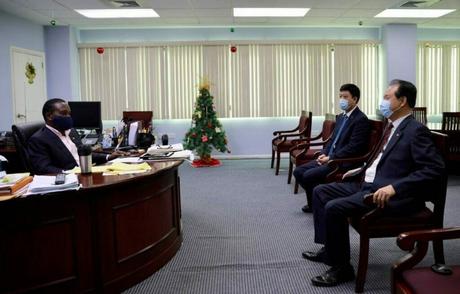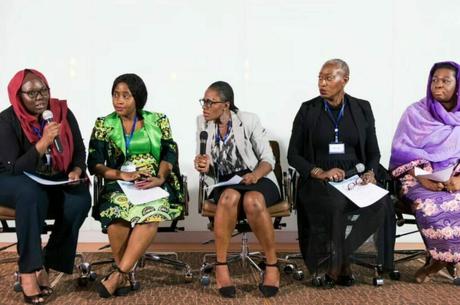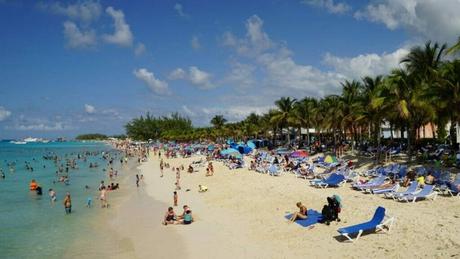Grenada, also known as the Spice Isle, boasts more than just scenic beauty and vibrant culture. Its international relations landscape is equally fascinating.
From vital partnerships with China and Cuba to active participation in the United Nations and the Commonwealth, Grenada’s role in global affairs is prominent. Regional affiliations in the Caribbean and Latin America further strengthen its standing. Looking ahead, climate diplomacy and deepening ties with countries like India and Brazil hold promise. Locally, international ties impact Grenada’s economy, culture, environment, and daily life, underscoring its significance in the global community.
United States7th February 1974Bilateral Investment Treaty (1984)
China20th January 1985Establishment of Diplomatic Relations
Caribbean Community1st May 1974Signing of the Treaty of Chaguaramas
(CARICOM)CARICOM Single Market and Economy
Organization of Eastern Caribbean States15th May 1975Regional Security Cooperation
Follow me as we dive deeper into Spice Isle’s international relationships.
Bilateral and Multilateral Relationships

Grenada, also known as the Spice Isle, has a lot more to offer than just scenic beauty and vibrant culture. Its international relations landscape is equally intriguing. Being a small island nation, Grenada’s bilateral and multilateral relationships are of utmost importance. They foster economic growth, facilitate cultural exchange, and most importantly, they carve out Grenada’s role in global affairs.
For instance, Grenada’s relationship with China is an important example of its bilateral connections. China, over the years, has aided Grenada in infrastructure development, contributing to the nation’s progress. But it’s not just about China, Grenada’s connection with Cuba has been historically robust, especially in the realm of healthcare and education.
Switching gears to multilateral relations, Grenada’s role within organizations such as the United Nations (UN) and the Commonwealth also paints a fascinating picture. These alliances are not only about diplomacy, they are about teamwork on global issues. Climate change, for instance, is a battle Grenada doesn’t fight alone, but hand in hand with its multilateral partners.
In the realm of trade too, Grenada’s membership in the Caribbean Community (CARICOM) offers it a platform to negotiate trade agreements as a collective unit. The unity amplified by these multilateral relationships, in many ways, gives Grenada a louder voice on the international stage.
Grenada’s bilateral and multilateral partnership environment is complex and multifaceted overall. They are crucial for the island nation’s development as well as for maintaining its identity on the world stage.
Diplomatic Engagements

Zooming in on Grenada’s diplomatic engagements, we find a well-knit tapestry of international cooperation and negotiation. These diplomatic endeavors echo Grenada’s commitment to peace and development, both locally and globally.
As a member of the UN, Grenada actively participates in the General Assembly and other forums. The island nation regularly voices its perspectives on global challenges, ranging from sustainable development to human rights. These diplomatic engagements help Grenada shape international norms and standards.
Additionally, Grenada’s diplomatic ties extend to its robust consular relations. The nation maintains consulates in numerous countries worldwide, facilitating citizen services and promoting cultural exchange. These diplomatic outposts serve as crucial conduits for Grenada’s foreign policy.
In a more direct, person-to-person level, Grenada hosts numerous international conferences and meetings. These gatherings, big or small, serve as microcosms of diplomacy in action. They help Grenada forge connections and facilitate discussions on myriad topics.
Ultimately, Grenada’s diplomatic engagements work towards creating an environment of understanding and cooperation. They symbolize the Spice Isle’s commitment to being an active participant in global dialogues.
Regional Affiliations

Diving into Grenada’s regional affiliations, we can see the Spice Isle’s significant presence in the Caribbean and broader Latin America. These regional connections foster a sense of belonging and a common identity, which helps Grenada’s standing abroad.
Grenada is a significant member of the Organization of Eastern Caribbean States (OECS) and is located in the heart of the Caribbean. This regional association promotes collaboration amongst its member nations by putting an emphasis on issues like economic integration and policy coordination. For Grenada, the OECS acts as a regional support system.
Further, Grenada’s affiliation with the Association of Caribbean States (ACS) offers it a platform to promote cooperation on shared challenges. Be it trade, transportation, or sustainable tourism, the ACS provides avenues for collaborative problem-solving.
Moreover, Grenada’s regional ties also extend to Latin America. As a member of the Bolivarian Alliance for the Peoples of Our America (ALBA), Grenada has an avenue to engage with Latin American nations on diverse issues, from social welfare to cultural exchange.
In summary, Grenada’s regional affiliations not only anchor it within the Caribbean and Latin America but also amplify its voice in these shared spaces. These affiliations reflect Grenada’s commitment to regional collaboration and solidarity.
Future Outlook

Looking ahead to Grenada’s international relations, it is evident that the road is both exciting and difficult. There are never two same on the worldwide scene thanks to the dynamic of world politics. This, therefore, provides Grenada with interesting new opportunities.
The field of climate diplomacy is one where we might anticipate some activity. Grenada is particularly sensitive to the effects of climate change because it is an island country. Grenada is likely to keep advocating for more reduction measures and support for adaptation in international climate negotiations.
Grenada might also seek to deepen its relations with countries like India and Brazil, as well as the African continent. These regions, burgeoning with economic growth and cultural vibrancy, can offer much in terms of mutual trade, investment, and cultural exchange.
We should also be watching for potential shifts in Grenada’s stance within regional bodies. As these organizations evolve, Grenada might reassess its engagements to better align with its national interests. This could involve anything from pushing for reforms within CARICOM to spearheading new initiatives in the OECS.
The journey ahead for Grenada on the global stage, though fraught with challenges, is teeming with opportunities. It’s a path that will require diplomatic finesse, strategic vision, and an unwavering commitment to the ideals of peace and sustainable development.
Impact on Locals

It’s essential to remember that the realm of international relations is not confined to the halls of diplomatic missions. Its ripple effects permeate down to the daily lives of locals. In Grenada, these international ties have tangible impacts on various facets of life.
Take, for example, Grenada’s bilateral ties. Whether it’s infrastructure projects backed by China or medical aid from Cuba, these relationships significantly contribute to the locals’ quality of life. They help shape the island’s physical landscape and its healthcare system, respectively.
On the economic front, Grenada’s trade relationships can influence the local markets. The export of spices and other goods, bolstered by international trade agreements, plays a critical role in the local economy. It impacts everything from job creation to prices in local markets.
Culturally, Grenada’s international relations can pave the way for vibrant cultural exchanges. Festivals, artist exchanges, and cultural showcases bring global cultures to the Spice Isle, enriching the local cultural scene.
Lastly, on the environmental front, Grenada’s active role in global climate dialog could be instrumental in securing the island’s future. Whether it’s securing funding for coastal defenses or championing renewable energy projects, these diplomatic efforts could have profound implications for Grenada’s sustainability.
In essence, Grenada’s international relations shape the island’s present and future. They impact the economy, culture, environment, and daily life of the locals, underscoring the significance of Grenada’s role in the global community.
FAQ

Is the US allies with Grenada?
Although they are not formally allies, the United States and Grenada maintain diplomatic relations. On a number of fronts, including commerce, security, and regional stability, the two countries work together. However, there is no official alliance treaty that governs their relationship.
Who are Grenada’s allies?
Grenada has several allies with whom it shares cooperative relationships. Some of its key allies include China, Cuba, and regional organizations like the Caribbean Community (CARICOM). These alliances foster economic, cultural, and diplomatic cooperation between Grenada and its partners.
What is the US relationship with Grenada?
The United States and Grenada share cordial diplomatic ties. They collaborate on trade, security, and regional matters. However, their relationship does not entail a formal alliance. The US maintains an interest in the stability and development of Grenada and the broader Caribbean region.

